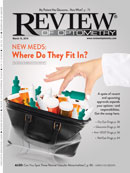A recent study has found that a microsphere-hydrogel drug delivery system can deliver afibercept in vitro in a controlled and extended manner for six months. This success may pave the way for an alternative to current bolus injection therapies of anti-vascular endothelial growth factor (anti-VEGF).
Researchers investigated the efficacy of a degradable drug delivery system made from suspending aflibercept-loaded microspheres within a biodegradable thermoresponsive hydrogel. The team found that the amount and rate of aflibercept release could be controlled by both the cross-linker concentration and microspheres load amount. The study examined two systems of different hydrogel concentrations, 2mM and 3mM hydrogel, each loaded with 10mg/mL and 20mg/mL of microspheres, respectively.
The initial burst of drug release, released within 24 hours, was from 37.35±4.92µg to 74.56±6.16µg, followed by controlled drug release of 0.07µg/day to 0.15µg/day. The higher hydrogel concentration (3mM) degraded faster than the lower concentration (2mM). The study found no significant cytotoxicity from the degraded drug delivery system byproducts and that the bioactivity of the released drug was maintained at therapeutic level over the entire release period.
Researchers believe their findings will lead to standards of care for ocular neovascularization patients that deviate from repeated injections of anti-VEGF.
| Liu W, Lee BS, Mieler WF, Kang-Mieler JJ. Biodegradable microsphere-hydrogel ocular drug delivery system for controlled and extended release of bioactive aflibercept in vitro. Curr Eye Res. October 7, 2018. [Epub ahead of print]. |

